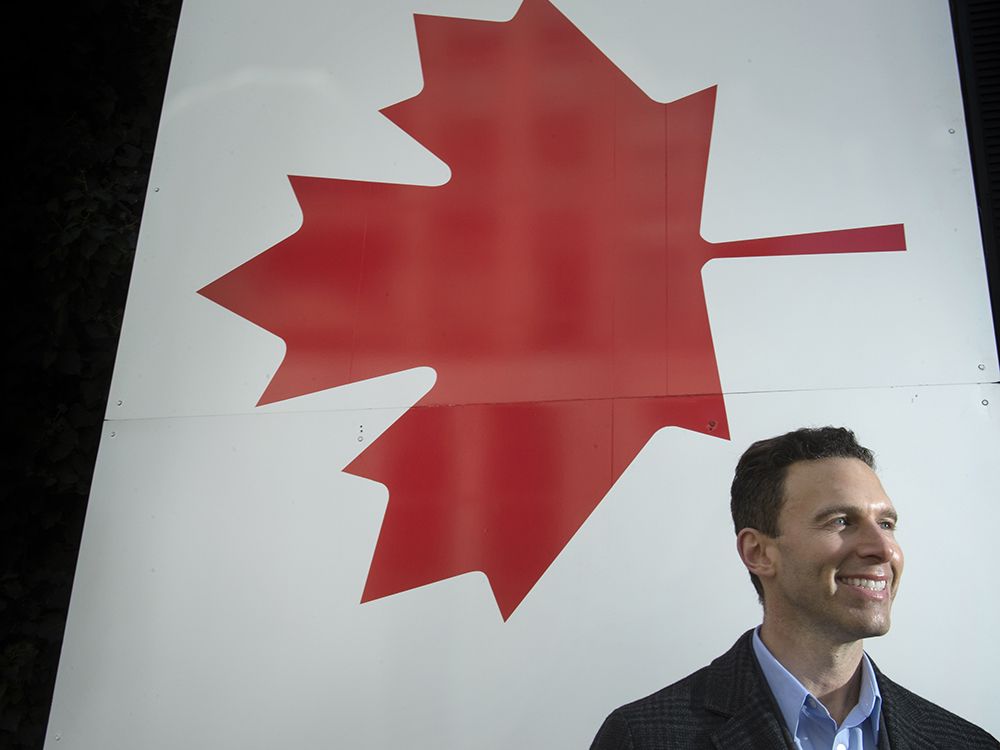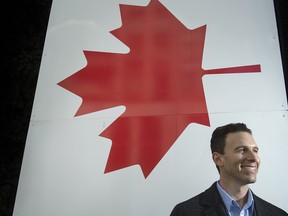Globalive strikes network deal with Telus to boost its chances to buy Freedom

Analyst says deal may spur Rogers to sell wireless assets to Quebecor instead

Article content
Globalive has signed a contingent network and spectrum sharing agreement with Telus Communications Inc. as it attempts shore up its bid to acquire Freedom Mobile, the Shaw Communications Inc. wireless unit valued at up to $4 billion that is on the block as Shaw attempts to complete a merger with rival telecom giant Rogers Communication Inc.
Advertisement 2
Story continues below
Article content
The 20-year agreement with Telus, which initially covers Ontario, British Columbia and Alberta, marks the first time a Canadian carrier has entered into network and spectrum sharing with a pure-play independent wireless competitor — however, it is “conditional on Globalive’s successful acquisition of Freedom Mobile.”
Anthony Lacavera, the founder of Globalive, has said publicly and repeatedly that a competitive wireless market with lower prices for consumers depends on the Freedom assets — once owned by Globalive and operated under the Wind Mobile banner — being put in the hands of a pure-play wireless operator rather than an incumbent telecommunications player.
In addition to Lacavera’s group, the Freedom assets have attracted interest from Montreal-based Quebecor Inc. and Xplornet Communications Inc., a rural broadband provider owned by New York-based private equity firm Stonepeak Infrastructure Partners.
Advertisement 3
Story continues below
Article content
Jeff Fan, a telecom analyst at Bank of Nova Scotia, said he can see how the network and spectrum sharing agreement is beneficial for Globalive and Telus, but thinks Rogers would be “boxed in” by the arrangement and would favour selling Freedom Mobile to Quebecor.
“We think this announcement will encourage RCI (Rogers) to deal with QBR (Quebecor) if they want to have this resolved before July 31,” Fan wrote in a note to clients Thursday.
Lacavera is unhappy with the way Rogers has conducted the Freedom Mobile sales process, and said Globalive was initially squeezed by factors including a requirement to sign what he described as an unnecessarily onerous non-disclosure agreement. In an interview Thursday, he said the arrangement with Telus — which he likened to separate three and six-lane highways being brought together as a nine-lane superhighway — strengthens Globalive’s proposal, making him optimistic Rogers will come to the table.
Advertisement 4
Story continues below
Article content
“We submitted an unsolicited offer on March 11, and we’ve continued to be outside the process having only high-level interactions with Rogers, nothing substantive,” he said, adding that he has the backing of a consortium of mostly North American investors including U.S private equity firms Baupost Group and Twin Point Capital. “We’re hopeful that it’s obvious to Rogers that we are very suitable remedy partners so that they can advance the Shaw deal to a successful conclusion.”
The sale process was thrown into disarray earlier this month when the federal Competition Bureau formally objected to the $26-billion merger of Rogers and Shaw. In documents filed with the Competition Tribunal, the Commissioner of Competition said the “remedy” proposed by Rogers and Shaw was not sufficient to allay its concerns that competition would be lessened to the detriment of Canadian consumers.
Advertisement 5
Story continues below
Article content
The filing argued that Freedom had shaken up the wireless landscape dominated by Rogers, Telus and Bell, and lowered prices for consumers where it operated.
Rogers said it would continue talks with the Competition Bureau while formally responding to the filing with its arguments to be weighed by the tribunal, but nevertheless pledged to sell Freedom “in its entirety.”
-

Federal Court denies Telus bid to block Quebecor’s $830M spectrum purchase in western Canada
-
![Quebecor Inc. chief executive Pierre Karl Péladeau.
[Peter J Thompson] [Financial Post story by Barbara Shecter/Financial Post]](https://smartcdn.gprod.postmedia.digital/financialpost/wp-content/uploads/2022/05/peladeau-vw0512.jpg?h=96&strip=all&quality=5)
Quebecor remains interested in Shaw wireless, but Péladeau says telco has other options for expansion
-

Competition Bureau’s case against Rogers-Shaw leaves some industry watchers scratching their heads
In a news release Thursday, Globalive said “long-term network and spectrum sharing is critical for fourth-player stability” to ensure competition remains in the wireless market amid the latest shake-up, making the most efficient use of scarce and finite spectrum.
Advertisement 6
Story continues below
Article content
“Industry newcomers committed to offering lower wireless pricing have historically struggled to build networks that can sufficiently compete with the 25-year head start of the incumbents,” the statement said.
“This transformational agreement (with Telus) would enable Globalive to not only provide consumers with lower pricing and innovative offerings, but also deliver on-par network quality, establishing a vigorously competitive environment for decades to come.”
The arrangement suggests Globalive’s bid for Freedom has support from Telus, which has opposed Quebecor as the buyer, according to a Reuters report Thursday. The news service reported that Telus and Bell have separately told regulatory and government authorities that Quebecor, which analysts have suggested would be a favoured buyer by Ottawa, should not be permitted to own the Freedom Mobile wireless assets because the company has a history of not using the spectrum it has obtained.
Advertisement 7
Story continues below
Article content
A spokesperson for the Competition Bureau told the Financial Post he was unable to confirm or comment on the matter because the regulator is required by law to conduct its work confidentially.
Earlier this week, Telus lost a court battle with Quebecor over the latter’s suitability to bid on wireless spectrum set aside in an auction overseen by the federal government last year. A Federal Court judge ruled that Quebecor was qualified to bid for the spectrum that is crucial for developing the latest generation of technology for mobile phones.
Quebecor paid $830 million for the spectrum, which is a key plank of the Montreal-based telecom company’s plan to expand mobile services outside its Quebec stronghold.
Quebecor chief executive Pierre Karl Péladeau has said Quebecor is interested in Shaw’s Freedom Mobile assets, but has other options including recently mandated Canadian Radio-television and Telecommunications Commission provisions that require Bell, Rogers, and Telus to open their national networks to regional players for seven years while they build their own.
On a conference call with analysts this month, Péladeau said the big national telecom players have so far been reluctant to negotiate the wholesale mobile virtual network operator (MVNO) arrangements, suggesting that they are putting up roadblocks to thwart competition. Rates are to be commercially negotiated between the parties, but final offer arbitration by the CRTC is available if negotiations fail.
• Email: [email protected] | Twitter: BatPost
Advertisement
Story continues below

![Quebecor Inc. chief executive Pierre Karl Péladeau.
[Peter J Thompson] [Financial Post story by Barbara Shecter/Financial Post]](https://smartcdn.gprod.postmedia.digital/financialpost/wp-content/uploads/2022/05/peladeau-vw0512.jpg?h=96&strip=all&quality=80)






